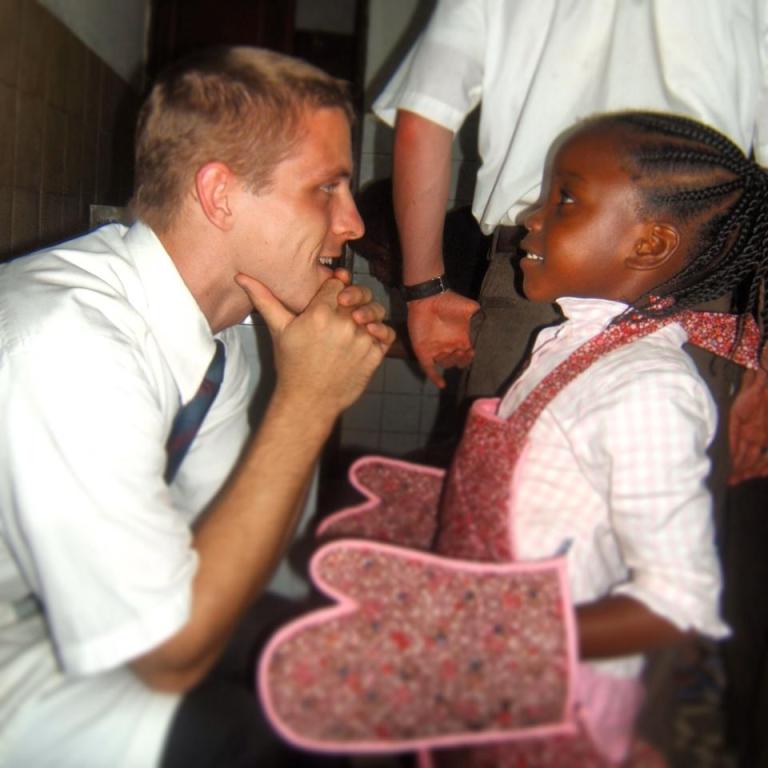Lectionary Reflections
Proper 14, Eighth Sunday after Pentecost
Matthew 14:22-33
August 7, 2011
My friend Gary gave me permission to tell you this story. Gary is a computer analyst in his mid 40s. He has been married and divorced three times. After a year of dating a woman named Anne who was also divorced with a 7-year-old daughter, he and Anne came to me and asked me if I would marry them. Our counseling and wedding planning was going alone fine until, about a month in, Gary began to develop a case of very cold feet. When he shared this with Anne, she suggested he get away for a day to clear his head. So he started driving with no particular destination in mind, and ended up at Lake Texoma. He got out of his car and began to walk, to soothe his jangled nerves. He came to a bench that looked out over the lake. He sat down and tried to breathe more deeply to unravel the knots in his stomach.
As he stared out at the lake, it was like looking into a soul mirror and things started to come clear. He saw that there were three knots in his stomach and each had a name. One was his fear that the odds were against him, that he would just keep repeating the same relationship patterns. The second was his fear of stresses coming at the fragile new family from outside—custody stress, job stress, and extended family pressures. The third was the hardest, knottiest fear of all; it was the fear that he was just not worthy of another human being's love, not worthy of God's love.
He had the right idea—taking time to find a quiet place to sit and name the knots in his stomach. We need to name our own knots, to focus our own fears.
Jesus Surrenders to God
Twenty centuries earlier, another man looks out over another lake from the mountaintop to which he has retreated to pray. He is not a superhero who has retreated to his bat cave. He is not a ghost out to haunt the already terrified. He is a man. Fully God, fully human. He is the Son of God, though those around him don't yet recognize him. His ship of faith is being battered by the rejection of his hometown folks and the beheading of his cousin John the Baptist by Herod. He knows his time is coming. Crowds of needy people press in on him constantly.
At last he has sent the crowds away and convinced his disciples to get in a boat and cross over ahead of him. Finally he has found time to pray. He is praying, perhaps lifting up each of his fears to God and exchanging them for faith, allowing the comfort and healing and power of God to fill his inner life, his heart, mind, emotions, will. This is what the Old Testament tells us to do, to surrender all our lesser fears to our fear of the Lord, our reverence for God, for who God is and what God can do.
But prayer time never lasts long enough. I know a pastor who puts his cell phone in the next room when he goes into his study at home to pray. Except sometimes he forgets to turn the ringer off.
In our story, the disciples are in the next room, but the ringer is on and Jesus' prayer time is over. They are in distress. As Jesus squints at the horizon he sees the disciples' little boat bobbing side to side, back and forth, up and down.
Scripture tells us three things about their situation and leaves us to come to our own conclusion. We are told they are battered by the waves, far from shore, and that the wind was against them.
If it were just one out of three, the disciples might be able to get free. Battered by waves, but near the shore and no wind. Or far from shore, but no waves and no wind. Or wind, but close to shore and minimal waves.
If it were just two out of three even, maybe they could get free. Battered by waves and far from shore, but wind blowing you back to shore. Battered by waves and wind against you, but close to shore.
But three out of three signals that they're in a situation they can't get out of by themselves and they are out of reach of any human help. Pity the souls in such a situation.
- Pity the woman who told me "Pastor, things are awful in my marriage. I really want to come with my husband and talk with you." "Fine, let me know when." "Pastor, I'm sorry, I suggested it to my husband, but he said, 'Counseling—our problems are too deep for that.'" He's right.
- Pity the person who says "I can't overcome this addiction by myself." He's right.
- Pity the one who says, "I can't lose this weight and get my health and myself respect back by myself." She's right.
- I can't leave this relationship by myself.
- I can't move beyond my bereavement by myself.





